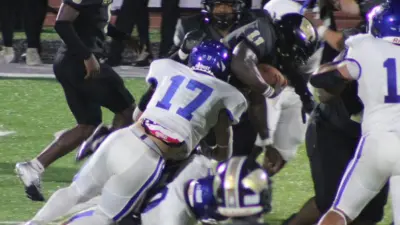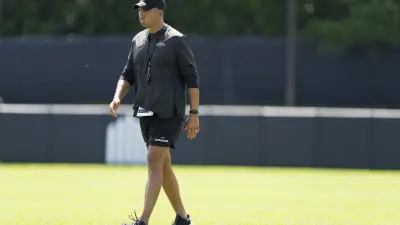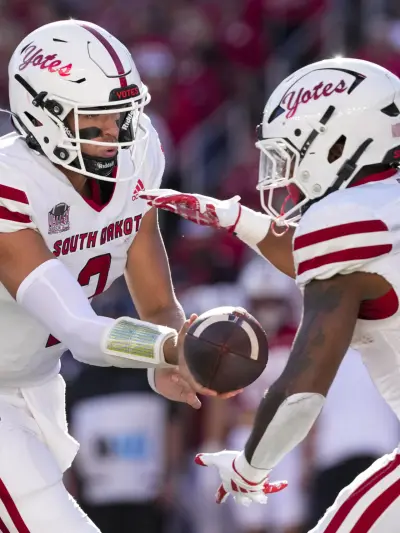Can you imagine a cooler job? If you’re someone who loves sports and loves writing, then sports journalism is an excellent option for you. The great thing you might have noticed about sports nowadays is that you have access to ones from all over the world. It’s not just about games local to your area; even if you’re not in the USA, you can still write about the NBA. Even if you’re not in the UK, you can still write about the Premier League. Why? Because technology allows you to access loads of different pieces of information that you can use in your sports journalism career.
Now, as dandy as this sounds, it is important for you to know that it’s a competitive job, that’s for sure. Which is why you need to know a few basics so that you can make your way up the sports journalism ladder.
Loving Sports Is Non-Negotiable
You can’t fake passion in sports journalism. Readers and viewers can tell when someone really understands the game. Loving sports doesn’t mean you need to know every stat or memorize every playbook but you should be genuinely interested in how games unfold and the athletes who play them. Your love for the game should be easy to see in how you write.
To stay sharp, make a habit of:
- Following multiple sports, not just your favorite one
- Reading sports news from different outlets to see how stories are covered
- Watching games with an analytical eye, noticing strategy and key moments
- Engaging in discussions about sports to strengthen your perspective
Education Matters, so Please Learn the Craft
A lot of people think that because they’re good with words and love sports, this will automatically make them a great sports journalist. However, this is not always the case. Sure, being good with words is a great start but it’s actually a craft you need to learn, writing. You’ll need to know how to write clearly, report accurately and communicate effectively under pressure. A degree in journalism, communications or media studies is a solid starting point. These programs teach you the fundamentals like writing, ethics and multimedia storytelling.
For those looking to advance their careers, pursuing an online master’s degree in journalism or a related field can be a smart move. Online programs give you the flexibility to:
More Sports News
- Keep working while you study
- Learn at your own pace
- Access expert instructors and networking opportunities
- Gain advanced skills in digital reporting, investigative techniques and sports media
Try to find sports journalism colleges that teach you all of the above and if you’ve already got your BA, then an online master’s can also help you stand out in a competitive job market and open doors to higher-level positions.
Building Real-World Experience
No matter how much you study, nothing beats hands-on experience. Getting involved early is crucial. Start writing for your school newspaper, local blogs or community sports websites. Volunteer to cover high school games or amateur leagues. These opportunities teach you how to work on deadlines and how to find the unique angle in every story.
Other ways to build experience include interning at sports media outlets, starting your own sports podcast or YouTube channel, networking with local coaches, players and sports reporters and learning to shoot and edit video for multimedia reporting.
Staying Updated with Sports News
Sports journalism moves fast and staying informed is part of the job. You need to know what’s happening in real time, from trades and injuries to breaking news and post-game analysis.
Make it a habit to:
- Check official league websites and trusted news outlets
- Follow athletes, teams and reporters on social media
- Subscribe to sports newsletters or alerts
- Watch press conferences and interviews to gather direct quotes and insights
Being up to date keeps your reporting relevant and helps you stay ahead of the competition.
Developing Your Own Style
Every great sports journalist has a voice that sets them apart. Maybe you’re great at in-depth analysis or you excel at human-interest stories that show the heart behind the game. Try to develop your own writing style so that when people read your work, they don’t need to see your name at the bottom of the page to know it’s you but they can hear your voice through the words.
Mastering the Multimedia Side and Staying Competitive Through Knowledge
Modern sports journalismisn’t just about writing articles. You’ll also need to be comfortable with video, audio and social media. Many outlets want journalists who can live-tweet a game, post quick video updates, and then turn around and write a detailed article. Learning these skills makes you more versatile and valuable to employers.
Sports journalism is competitive but not impossible to break into. You’ll need persistence, a strong portfolio and the willingness to start small. Many journalists begin at local papers or smaller media outlets before moving on to bigger opportunities.
Have Fun With It
At the end of the day, the career you pursue should be one that’s interesting and honest, if you’re lucky, also quite fun. So please, try to have fun with sports journalism. Visit and write about sports you’ve never heard of before and put your own unique experience on the situation so that you can enjoy and learn at the same time.


















